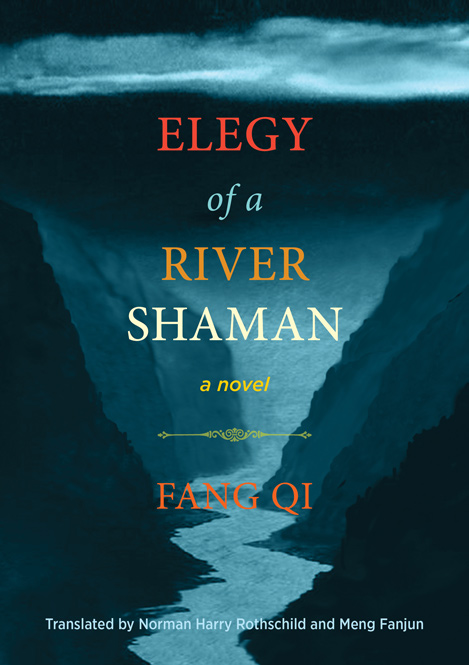Elegy of a River Shaman
A Novel
Fang Qi
Translated by Norman Harry Rothschild
and Meng Fanjun
2016, 488 pages
ISBN 978-1-937385-38-5 Paper $28.00
ISBN 978-1-937385-39-2 Cloth $45.00
With the tenacious pride and relentless ferocity of their murderous, totemic ancestor, the Immortal White Tiger, the Li family, led by stout-hearted Li Diezhu and his iron-willed wife Tao Jiuxiang, ascend from migrant destitution to local eminence, only to have the War of Resistance Against Japan (WWII), inter-familial rivalries, political upheaval, and modernity unmake decades of endless toil. The shamanic chants of tragic hero Xia Qifa—a tireless benevolent presence ever willing to help the hardscrabble mountain folk perform rites, weather droughts, or capturing ghosts and dragons—serve as the rhythmic, incantatory soundtrack of the story. In the end, with a grim inevitability, the completion of the Three Gorges Dam inundates the rugged landscape that forged the descendants of the Tiger, submerging countless generations of love and pain, the endless triumphs and struggles that shaped the lore and history of a people, leaving the reader to wonder what remains.
In Elegy of a River Shaman, Fang Qi has elegantly woven folk songs and shamanic chants into an intricate, beautiful, and wrenchingly powerful narrative of the destruction and erasure of the traditional culture along the rugged, remote gorges surrounding the Yangzi River.
“Fang Qi's Elegy of a River Shaman is an expansive novel born of anthropological fieldwork, folklore research, and historical investigation. It is centered on the Gate of the Thundrous One-Footed Dragon, Kuimen, at a key point of the remote, scenic Three Gorges on the upper part of the Yangtze River. Weaving daily life of the local people
together with the legends and myths of the region, the author has created a rich tapestry of narrative, chant, and sheer learning. That the translators, Norman Harry Rothschild and Meng Fanjun, have been able to render all of this esoteric and exotic lore into graceful and felicitous English is itself an impressive achievement.”
— Victor H. Mair
University of Pennsylvania


